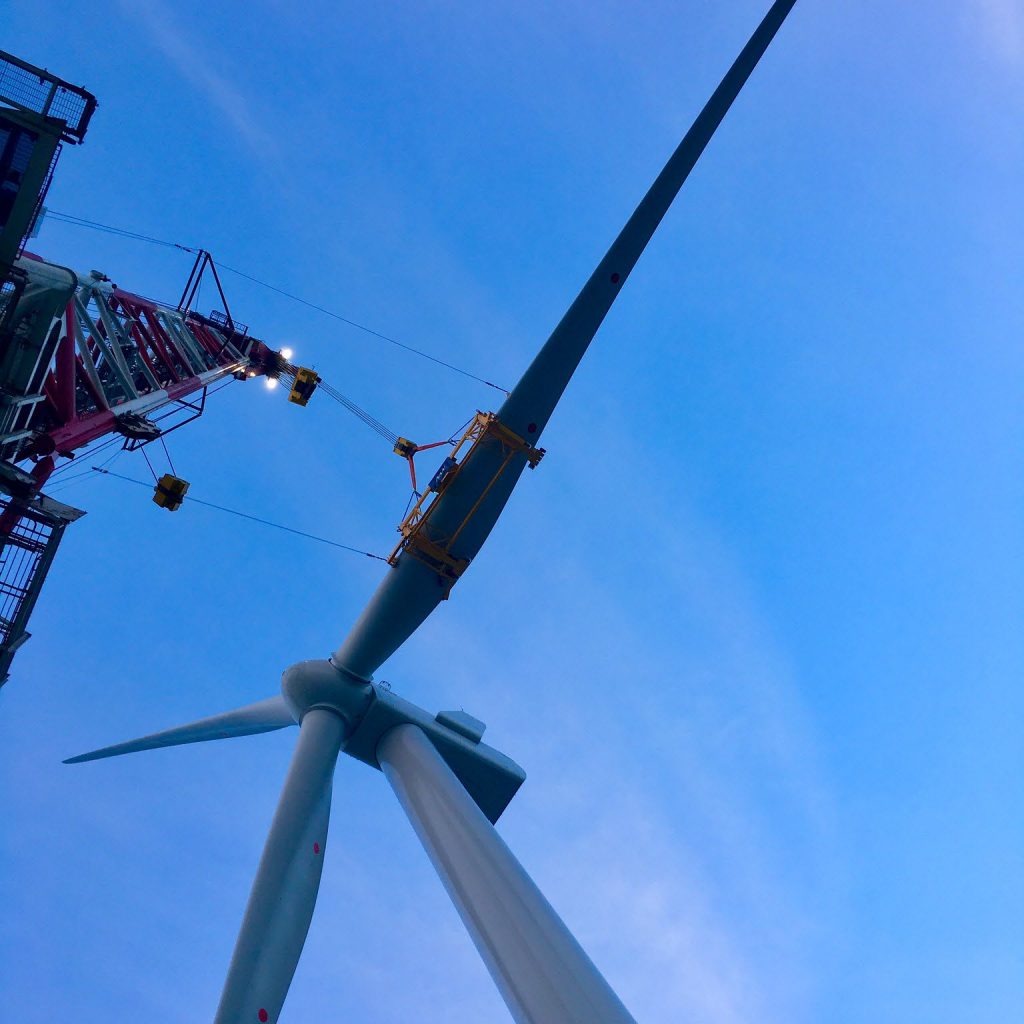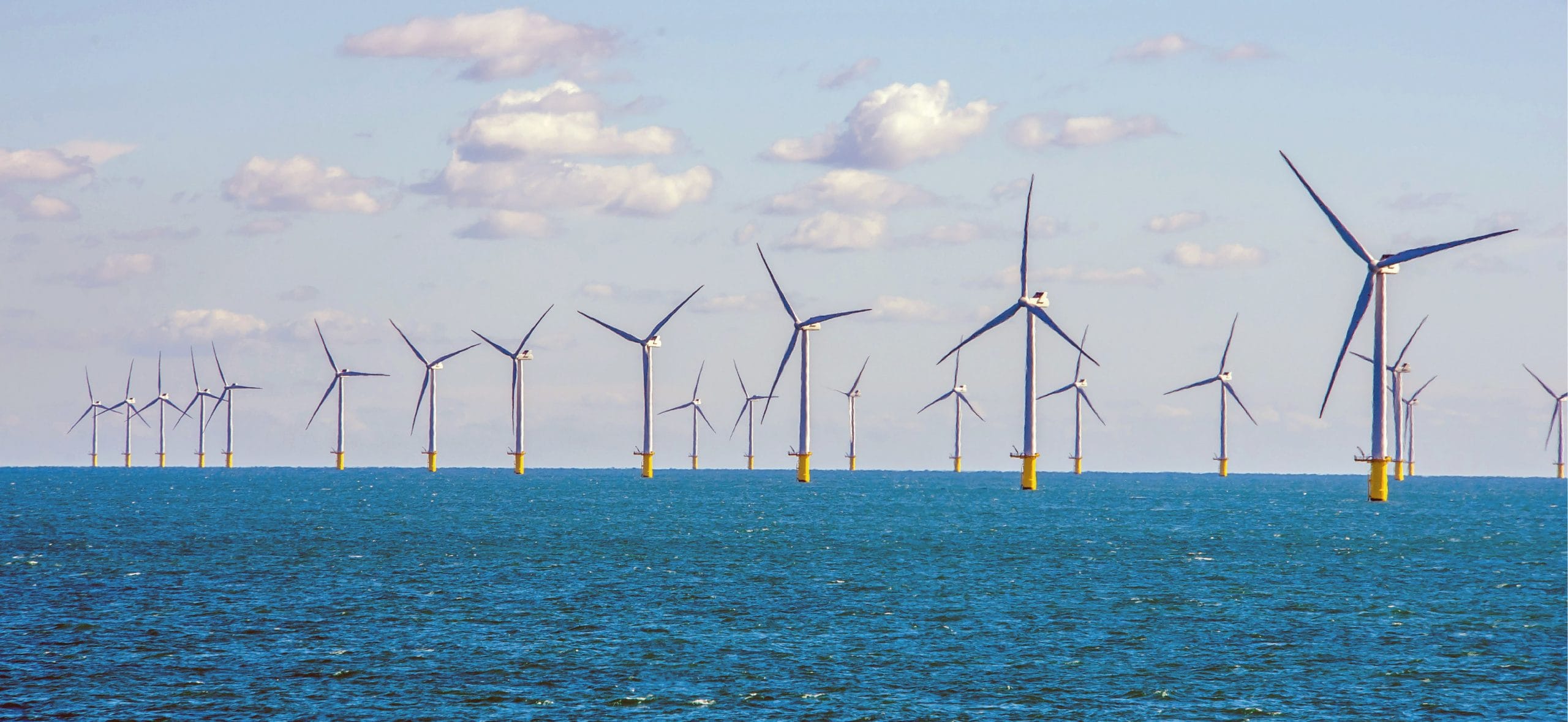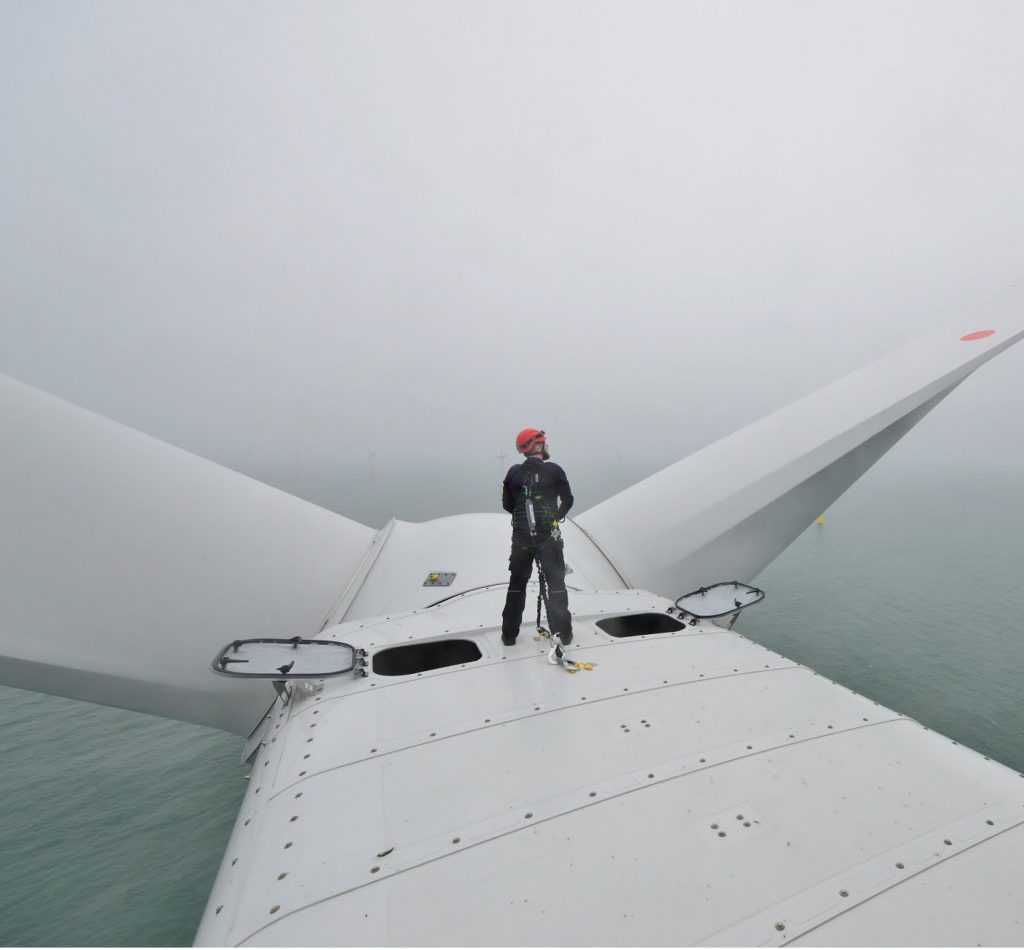

A wind farm project is made up of several major physical components:
Every physical component is integral to a wind farm project and without any one of these the wind farm wouldn’t work. Each individual component requires a different section of land or sea and each has unique engineering and environmental challenges.
If a project of the scale of Rampion 2 is to be successfully consented and built, the physical components must be collectively designed such that they work together as a unit, while being individually assessed to mitigate and minimise impacts on the environment and the community.
The first step in the development process was to understand hard or fixed constraints, which cannot be overcome. These constraints may restrict a particular project component to a specified location or may prevent a project component from being located in a particular local area. This allowed Areas of Search to be developed for the offshore and onshore project components.
The results of further technical and environmental surveys, coupled with engagement with key stakeholders, has allowed the refinement of initial proposals put forward in January, to now form our draft proposals for formal public consultation.
UK Government target for offshore wind
40 Gigawatts (GW) of offshore wind capacity by the end of this decade. This equates to a quadrupling of offshore wind capacity from 10gigawatts (GW) in 2020, to 40GW by 2030.
Climate change
UN IPCC Climate Scientists say we have until the end of the decade to keep warming below 1.5°C above pre-industrial levels, to prevent catastrophic and irreversible impacts on climate change.
Securing our energy supplies
Around 5% of UK electricity is still generated by coal but this is going to be phased out in the next 2 – 3 years and requires clean and green energy to replace it.
Electric vehicles and hydrogen
Great strides have recently been taken in securing a greener future for transport, aviation and heating, through advancements in battery technology and applications for hydrogen fuel. However, these technologies are only carbon neutral if the electricity needed to charge batteries and generate hydrogen, comes from renewable energy sources.
Wind is now an essential renewable resource for powering our modern world with clean, green energy and the UK is the European and World leader in offshore wind generation.
Find out more about climate change, the history of electricity and wind energy technology, at our Rampion Visitor Centre: www.rampionoffshore.com/visitor-centre
Wind turbine technology has rapidly advanced in recent years, producing much more power per unit, such that the power output for the scheme could be three times that of the operating Rampion project.


The consultation has been designed to ensure that people have the opportunity to express their views and contribute to the evolving design of the Rampion 2 project.
This is the primary opportunity to provide your feedback on our draft proposals and associated environmental information, to be able to influence our final proposals which will be submitted to the Planning Inspectorate early next year.
In order to ensure the construction and operation of Rampion 2 minimises impacts on the environment and local communities, we have completed a Preliminary Environmental Impact Report (PEIR), which forms the basis of the proposals we are consulting on now.
We encourage anyone who has an interest in the project to give their views about how the Rampion 2 proposals may benefit or impact you. We would greatly appreciate your feedback on:
We are keen to hear from you about the merits of the proposals or the relative merits of options, to help further shape our proposals, prior to us submitting a development consent application in early 2022.
The best way to give your feedback is by using the Consultation Response Form.
Consultation responses will also be accepted via email at rampion2@rwe.com or post to:
Rampion 2 – Consultation Response, Greenwood House, Westwood Way, Westwood Business Park, Coventry, CV4 8PB.
If replying via these channels, please be sure to clearly state that your communication is a consultation response, and provide your name, post code and email address.
Should you wish to listen to a presentation and ask questions to members of the Project Team, please visit and book at rampion2.com/consultation-events
If you or your organisation need assistance reading or understanding the consultation documents please contact us to discuss your requirements. Translation of key documents to other languages, large print, audio or braille format may be arranged on request.
We are all working in unusual times and while we would much prefer to meet you face to face, we have had to close our Worthing Office since March 2020 and unfortunately, we are unable to hold public exhibitions as we did for the original Rampion project.
*Please note that this is based on our anticipated programme at the time of the Formal Consultation held from 14 July to 16 September 2021. It is now subject to change to account for additional feedback received during the reopened consultation period from 7 February to 11 April 2022. We will share our updated indicative timescales at the earliest opportunity.
Analyse consultation feedback, determine onshore substation site selection, further refine proposals, produce Consultation Report and detailed Environmental Statement, setting out how we will mitigate any impacts.
Sep - Dec 2021This is when the decision on consent may be expected. Should consent be awarded, the following stages would follow below...
End 2023Earliest possible investment approval date
End 2024Earliest possible construction work commences.
2025 / 2026Rampion 2 project fully operational and connected to the grid.
2028 / 2029Thank you for taking the time to participate in our consultation!
We would like to build on our existing relationships from the Rampion project, while also reaching new communities who weren’t so involved the first time around, to become a long-term, good neighbour of the Sussex community.
© 2024 Rampion 2 Wind Farm. All rights reserved.
Created with ❤ by Growth by Design